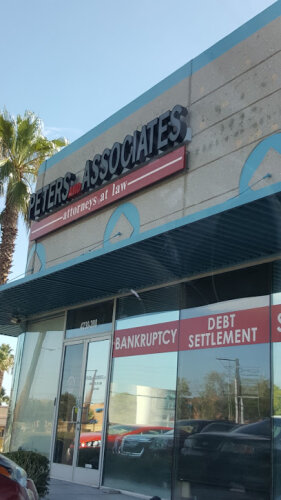Best Brokerage Lawyers in New Mexico
Share your needs with us, get contacted by law firms.
Free. Takes 2 min.
Free Guide to Hiring a Real Estate Lawyer
Or refine your search by selecting a city:
List of the best lawyers in New Mexico, United States
About Brokerage Law in New Mexico, United States
Brokerage law in New Mexico regulates the activities of individuals and companies acting as intermediaries in transactions involving real estate, securities, insurance, and various commodities. Most commonly, the term brokerage relates to real estate professionals who help people buy, sell, or lease property. However, it also extends to other fields, such as stock and commodity brokers and insurance agents. Brokerage laws in New Mexico are designed to protect consumers, ensure fair business practices, and set qualifications for licensed brokers within the state.
Why You May Need a Lawyer
Situations involving brokerage often include high-value assets, complex contracts, and significant regulatory oversight. You may need a lawyer in the following circumstances:
- Disputes between brokers and clients regarding commissions or representation
- Questions about disclosure obligations during property transactions
- Allegations of misrepresentation or fraud
- Issues with licensing or qualifications for operating as a broker
- Concerns about compliance with federal and state regulations
- Problems completing a real estate transaction due to title, zoning, or financing issues
- Uncertainty about the legal responsibilities of dual agency
- Complex commercial brokerage agreements
- Securities or investment brokerage matters involving state law violations
- Legal review of contracts, addenda, or purchase agreements
Local Laws Overview
In New Mexico, brokerage activities are governed by a combination of state statutes, regulations, and administrative codes depending on the industry. Key aspects include:
- Real Estate Brokers: The New Mexico Real Estate Commission oversees real estate brokers. Licensing is mandatory. All brokers must comply with the New Mexico Real Estate License Law and the Commission's rules, including continuing education requirements and ethical standards.
- Securities Brokers: The New Mexico Securities Division regulates securities firms and agents under the New Mexico Uniform Securities Act. This includes licensing, registration, and antifraud provisions.
- Insurance Brokers: Insurance licensing and oversight are handled by the New Mexico Office of Superintendent of Insurance, which enforces consumer protections and broker qualifications.
- Disclosure Requirements: Brokers must adhere to strict disclosure rules ensuring that clients are fully informed about material facts, fees, and potential conflicts of interest.
- Fiduciary Duty: New Mexico requires brokers to act in the best interests of their clients, avoiding self-dealing and undisclosed dual agency activities.
- Contract Law: Real estate and other brokerage transactions must comply with state contract law, including written agreements for certain types of deals.
Frequently Asked Questions
What is the role of a broker in New Mexico?
A broker acts as an intermediary between parties in a transaction, helping facilitate deals, navigate legal requirements, and ensure compliance with regulatory authorities. Brokers may work in real estate, securities, insurance, or commodities.
Do I need a license to be a broker in New Mexico?
Yes. Most brokerage activities, especially in real estate and securities, require a state-issued license. Fines and penalties may result from operating without proper credentials.
Can a real estate broker represent both the buyer and seller?
Yes, but this is called dual agency and it is only allowed with full, written disclosure and consent from both parties. Strict rules govern how information and negotiations are handled in such scenarios.
What disclosures must a broker provide to clients?
Brokers must disclose material facts about the property or investment, their compensation, conflicts of interest, and any known defects or risks. Failure to disclose required information can result in legal consequences.
How are brokerage commissions regulated?
There is no statewide standard commission rate. Commissions are negotiable and should be outlined clearly in the brokerage agreement. Regulations require transparency and fair dealing regarding commissions.
What can I do if I have a dispute with my broker?
First, try resolving the issue directly with the broker or their supervising agency. If unsuccessful, you may file a complaint with the relevant state regulatory body, such as the New Mexico Real Estate Commission, or seek legal advice to pursue litigation or mediation.
Do brokers owe a fiduciary duty to their clients?
Yes. Brokers in New Mexico are legally obligated to act in the best interests of their clients, prioritizing client interests above their own.
Are there continuing education requirements for brokers?
Yes. Licensed brokers must complete continuing education courses according to the specific requirements of their licensing authority, such as the Real Estate Commission or Securities Division.
What documents should I review before hiring a broker?
You should review the broker’s license status, brokerage agreements, disclosure forms, fee schedules, and any mandated state documents relevant to your transaction.
Can I file a complaint against a broker in New Mexico?
Yes. You can file a complaint with the appropriate regulatory agency overseeing the brokerage activity, such as the New Mexico Real Estate Commission or the Securities Division.
Additional Resources
Individuals seeking assistance or more information about brokerage in New Mexico can contact or consult the following organizations:
- New Mexico Real Estate Commission: Licensing, complaints, and regulations for real estate professionals
- New Mexico Securities Division: Oversight of securities brokers and enforcement of securities laws
- Office of Superintendent of Insurance: Information for insurance brokers and consumer assistance
- New Mexico State Bar Association: Lawyer referrals and consumer legal resources
- Better Business Bureau: Reviews and complaints regarding brokerage firms
- U.S. Securities and Exchange Commission: Federal oversight and guidance for securities brokerage
Next Steps
If you need legal assistance in a brokerage matter in New Mexico, start by gathering all relevant documents and communications related to your case. Consider the following steps:
- Determine the type of brokerage involved and identify the regulatory body with authority over your matter
- Contact the appropriate agency if you wish to verify a broker’s credentials or file a complaint
- Consult with a lawyer experienced in New Mexico brokerage law for advice on your specific situation
- Request referrals through the New Mexico State Bar Association if you do not have a lawyer
- Be prepared to provide a clear summary of your issue and any supporting documentation during your consultation
- Follow up on any agency or legal instructions and keep copies of all correspondence
Proper legal advice can help ensure your rights are protected throughout any brokerage transaction or dispute. Acting promptly will give you the best opportunity to resolve your issue efficiently and favorably.
Lawzana helps you find the best lawyers and law firms in New Mexico through a curated and pre-screened list of qualified legal professionals. Our platform offers rankings and detailed profiles of attorneys and law firms, allowing you to compare based on practice areas, including Brokerage, experience, and client feedback.
Each profile includes a description of the firm's areas of practice, client reviews, team members and partners, year of establishment, spoken languages, office locations, contact information, social media presence, and any published articles or resources. Most firms on our platform speak English and are experienced in both local and international legal matters.
Get a quote from top-rated law firms in New Mexico, United States — quickly, securely, and without unnecessary hassle.
Disclaimer:
The information provided on this page is for general informational purposes only and does not constitute legal advice. While we strive to ensure the accuracy and relevance of the content, legal information may change over time, and interpretations of the law can vary. You should always consult with a qualified legal professional for advice specific to your situation.
We disclaim all liability for actions taken or not taken based on the content of this page. If you believe any information is incorrect or outdated, please contact us, and we will review and update it where appropriate.
Browse brokerage law firms by city in New Mexico
Refine your search by selecting a city.











